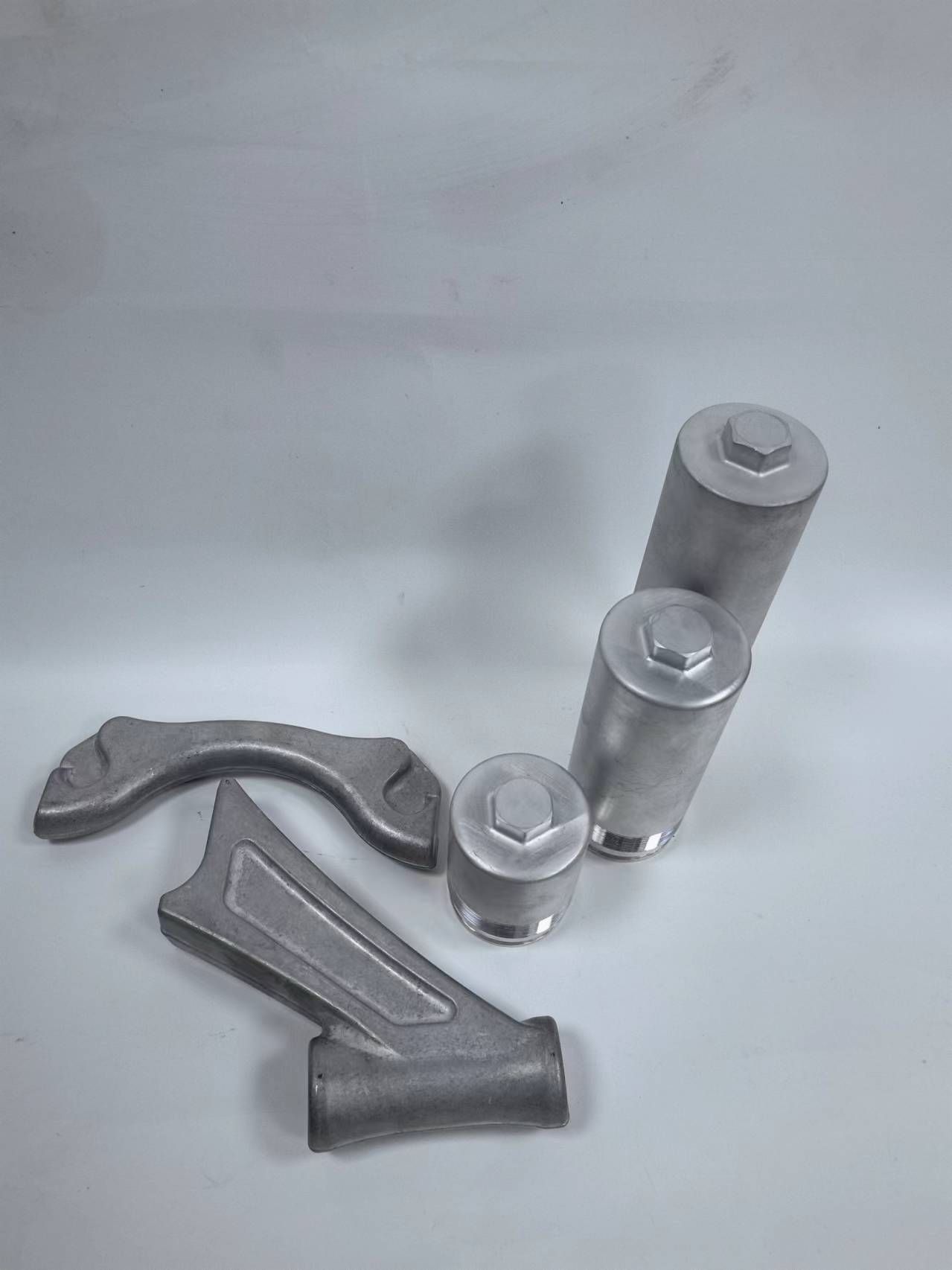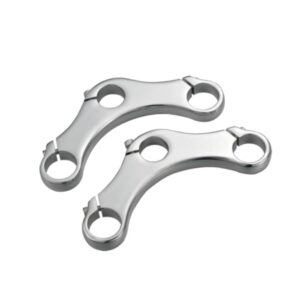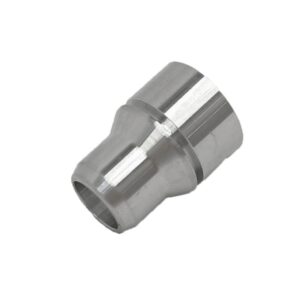The manufacturing world has witnessed remarkable advancements over the years, and one area that stands out in terms of innovation and efficiency is the forging of aluminum for CNC (Computer Numerical Control) machining. Aluminum, prized for its lightweight, corrosion-resistant, and versatile properties, has been a key material in industries ranging from automotive and aerospace to consumer electronics. Over time, the process of aluminum forging has evolved significantly, particularly in the CNC machining industry, where precision, durability, and efficiency are paramount. In this article, we will explore the evolution of aluminum forging in CNC machining, how it has enhanced the industry, and how MINGYU Tech, a leader in the sector, continues to push the boundaries of innovation.
The Early Stages of Aluminum Forging
In the early stages of manufacturing, aluminum forging was a relatively straightforward process. It involved the application of heat and pressure to shape raw aluminum into the desired form. The main goal was to achieve a durable and strong product, which was ideal for applications requiring high strength-to-weight ratios. However, early forging techniques were labor-intensive, lacked precision, and were limited in terms of the complexity of the parts that could be created.
As industries like automotive, aerospace, and electronics grew, so did the demand for more complex, lighter, and stronger components. The need for precision was particularly critical, and it was here that CNC machining began to revolutionize the process. CNC machining offered a level of accuracy and repeatability that traditional manual forging techniques could not match, setting the stage for more sophisticated aluminum forging methods.

The Role of CNC Machining in the Evolution of Aluminum Forging
CNC machining brought about a transformative change in aluminum forging. By integrating computer-controlled processes into the forging operation, manufacturers were able to achieve unprecedented levels of precision and consistency. CNC machines, guided by detailed 3D models and design specifications, allowed for the production of highly complex and intricate parts with tolerances as tight as a few micrometers.
The combination of CNC machining with aluminum forging led to several key advantages:
- Enhanced Precision: CNC machining allows for the creation of complex aluminum parts that were previously unattainable with traditional forging techniques. The precision of CNC technology enables manufacturers to achieve perfect, repeatable results even in mass production.
- Improved Material Efficiency: One of the key benefits of CNC machining is its ability to reduce material waste. By precisely cutting, shaping, and forging aluminum, manufacturers can optimize the use of raw materials, lowering costs and enhancing the cost performance of the manufacturing process.
- Shorter Lead Times: CNC machining drastically reduces production times. The integration of automated processes in forging allows for faster turnaround times without compromising on quality. For industries such as aerospace and automotive, where lead times are critical, this is a game changer.
- Versatility in Design: With CNC machining, manufacturers can produce custom designs with relative ease. The flexibility of CNC allows for quick modifications to the production process, enabling the creation of both standard parts and highly specialized components for OEM/ODM clients.
At MINGYU Tech, we understand the immense value CNC machining brings to the aluminum forging process. We continuously invest in the latest CNC technology to ensure that our clients receive parts that meet the highest standards of quality and precision. Whether it’s a prototype or mass production, MINGYU Tech’s state-of-the-art CNC systems deliver consistently outstanding results.

Advancements in Aluminum Forging Materials
Alongside the improvements in CNC machining, aluminum alloys have also evolved over the years, further enhancing the forging process. Advanced research and R&D efforts have led to the development of aluminum alloys that offer superior mechanical properties, such as increased strength, corrosion resistance, and heat tolerance.
These advancements in materials, coupled with precision CNC machining, have allowed manufacturers to produce lightweight yet strong components for high-performance applications. In the aerospace industry, for example, aluminum forged parts play a critical role in reducing the overall weight of aircraft, thereby improving fuel efficiency and reducing emissions.
At MINGYU Tech, we supply a wide range of aluminum alloys, each carefully selected for its specific properties. Our commitment to R&D ensures that we stay at the forefront of material innovation, offering our clients the latest in high-performance aluminum for their CNC machining needs.
Applications of Aluminum Forging in CNC Machining
The evolution of aluminum forging in CNC machining has broadened the scope of applications for aluminum parts. Here are some key industries that benefit from these advancements:
- Automotive: The automotive industry relies heavily on lightweight components to improve fuel efficiency and meet strict environmental regulations. Aluminum forged parts produced through CNC machining are used in engine components, chassis structures, and wheels.
- Aerospace: Aerospace manufacturers are increasingly turning to aluminum forging to reduce the weight of aircraft while maintaining structural integrity. CNC machining ensures that these components meet the rigorous safety and performance standards required in the industry.
- Consumer Electronics: The electronics industry demands components that are not only functional but also aesthetically pleasing. Aluminum forged parts are used in devices such as smartphones, laptops, and wearables, where precision and design play a critical role in product success.
- Medical Devices: Aluminum components used in medical devices require extreme precision to ensure safety and performance. CNC machining allows for the production of intricate parts that meet the strict regulatory requirements of the medical industry.

The Future of Aluminum Forging in CNC Machining
The future of aluminum forging in CNC machining looks bright, with continued advancements in materials, machining technology, and automation. MINGYU Tech is committed to staying at the forefront of these innovations, constantly improving our processes and technologies to better serve our clients.
With growing demand for lightweight, high-strength components across multiple industries, aluminum forging through CNC machining is set to play an even more critical role in the global manufacturing landscape. The development of new alloys, increased automation, and improved CNC precision will allow manufacturers like MINGYU Tech to produce parts with unparalleled accuracy and efficiency.
Conclusion
The evolution of aluminum forging in CNC machining has transformed the manufacturing industry, enabling the production of high-quality, complex parts with exceptional precision. By combining cutting-edge CNC technology with advanced aluminum alloys, manufacturers can achieve better performance, faster production times, and lower costs. MINGYU Tech, as a leading player in this space, continues to push the boundaries of innovation, offering tailored solutions for industries ranging from automotive to aerospace.
As the demand for lightweight, durable components grows, the continued advancements in aluminum forging and CNC machining will undoubtedly shape the future of manufacturing. With a focus on cost performance, precision, and cutting-edge R&D, MINGYU Tech is poised to remain at the forefront of this exciting industry transformation.




